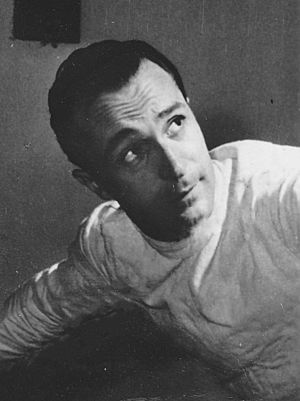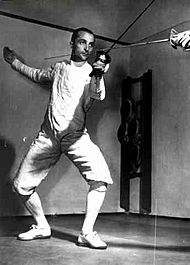Edoardo Mangiarotti facts for kids
 |
|||||||||||||||||||||||||||||||||||||||||||||||||||||||||||||||||||||||||||||||||||||||||||||||||||||||||||||||||||||||||||||||||||
| Personal information | |||||||||||||||||||||||||||||||||||||||||||||||||||||||||||||||||||||||||||||||||||||||||||||||||||||||||||||||||||||||||||||||||||
|---|---|---|---|---|---|---|---|---|---|---|---|---|---|---|---|---|---|---|---|---|---|---|---|---|---|---|---|---|---|---|---|---|---|---|---|---|---|---|---|---|---|---|---|---|---|---|---|---|---|---|---|---|---|---|---|---|---|---|---|---|---|---|---|---|---|---|---|---|---|---|---|---|---|---|---|---|---|---|---|---|---|---|---|---|---|---|---|---|---|---|---|---|---|---|---|---|---|---|---|---|---|---|---|---|---|---|---|---|---|---|---|---|---|---|---|---|---|---|---|---|---|---|---|---|---|---|---|---|---|---|---|
| Nationality | Italian | ||||||||||||||||||||||||||||||||||||||||||||||||||||||||||||||||||||||||||||||||||||||||||||||||||||||||||||||||||||||||||||||||||
| Born | 7 April 1919 Renate, Italy |
||||||||||||||||||||||||||||||||||||||||||||||||||||||||||||||||||||||||||||||||||||||||||||||||||||||||||||||||||||||||||||||||||
| Died | 25 May 2012 (aged 93) Milan, Italy |
||||||||||||||||||||||||||||||||||||||||||||||||||||||||||||||||||||||||||||||||||||||||||||||||||||||||||||||||||||||||||||||||||
| Sport | |||||||||||||||||||||||||||||||||||||||||||||||||||||||||||||||||||||||||||||||||||||||||||||||||||||||||||||||||||||||||||||||||||
| Sport | Fencing | ||||||||||||||||||||||||||||||||||||||||||||||||||||||||||||||||||||||||||||||||||||||||||||||||||||||||||||||||||||||||||||||||||
|
Medal record
|
|||||||||||||||||||||||||||||||||||||||||||||||||||||||||||||||||||||||||||||||||||||||||||||||||||||||||||||||||||||||||||||||||||
Edoardo Mangiarotti (born April 7, 1919 – died May 25, 2012) was an amazing Italian fencer. He won a total of 39 medals at the Olympics and World Championships. This is more than any other fencer in history! His Olympic medals include one individual gold, five team golds, five silver, and two bronze medals. He competed from 1936 to 1960.
Contents
What is Fencing?
Fencing is a sport where two people fight with swords. They try to touch each other to score points. It's one of the oldest sports in the Olympic Games. It was part of the very first modern Olympics in 1896.
Electronic scoring was added in 1936 for the épée events. This was the same year Mangiarotti won his first Olympic gold. He was incredibly good at épée. He was also very strong in foil, second only to the expert fencer Christian d'Oriola. Many people consider Mangiarotti the most successful fencer ever.
Edoardo's Early Life
Edoardo Mangiarotti was born on April 7, 1919. He came from a famous fencing family. His father, Giuseppe Mangiarotti, was a fencing master from Milan. He had won the national épée championship 17 times!
Edoardo's father had a special plan for him. Edoardo was naturally right-handed. But his father trained him to fence with his left hand. This made him a very tricky opponent for others. Edoardo's older brother, Dario Mangiarotti, was also a great fencer. Dario won a world title in 1949. He also won one gold and two silver medals at the Olympics. Their brother Mario Mangiarotti was also a fencer.
Before World War II
Edoardo started winning early. He became a national junior foil champion when he was just 11 years old. At 16, he joined the Italian senior team. He competed in the World Championships in 1935.
The next year, young Mangiarotti won an Olympic team épée gold medal. This was a great reward for his father's hard work. In 1937, Edoardo won another gold medal. This was at a World Championships team event in Paris. In 1938, he won a silver in individual épée. He also got a bronze in team épée and a gold in team foil in Czechoslovakia.
Career After the War (1945-1950)
Even at a young age, Mangiarotti showed strong determination. This helped him stand out from other fencers. He was excellent in both foil and épée in the 1950s.
At the London Olympics in 1948, Mangiarotti won a bronze medal. This was in the individual épée event. He also won two silver medals with his team. His brother Dario could not compete then because of an injury.
In 1949, Dario won the individual épée World Championship. This was in Cairo. Edoardo was part of the winning épée and foil teams that year. Two years later, Edoardo became the top individual épée fencer. He won the World Championships in Stockholm.
Helsinki Olympics in 1952
The Helsinki Games in 1952 were a huge success for the Mangiarotti brothers. Edoardo Mangiarotti won the individual épée gold medal. He beat 76 other fencers with his strong style. He had a tough start but finished with seven victories.
His brother Dario won the silver medal in the same event. This was a huge moment for their family. Edoardo won two gold medals (for épée team and individual). He also won two silver medals (for foil team and individual). Dario won a gold medal for the épée team and a silver for individual épée. Together, the family won an amazing six medals!
Melbourne Olympics in 1956
By the Melbourne Olympics, Edoardo was a bit older. But he was still determined to win. In the individual épée, three Italian fencers tied for first place. They each had five wins and two losses. A special play-off, called a barrage, was needed to decide the medals.
The play-off was very exciting. Mangiarotti, Carlo Pavesi, and Giuseppe Delfino all had one win and one loss after the first round. In the second round, Mangiarotti got tired late at night. He lost both his matches. Pavesi then beat Delfino to win the gold medal. The Italians won all three medals! Mangiarotti took the bronze. He also won gold in both the épée and foil team events.
Rome Olympics in 1960
At the 1960 Games in Rome, Mangiarotti was 41 years old. He was the oldest member of the Italian team. He won a silver medal in the team foil event. The Soviet team, with champion Zhdanovich, won gold.
The Italian épée team also won gold. This team included Mangiarotti and individual gold medalist Delfino. They beat a strong British team. This was Mangiarotti's 13th and final Olympic medal. He broke the record of 12 medals held by Paavo Nurmi. His record stood until 1964. Then, Larisa Latynina won her 18th medal. Her record was later broken by Michael Phelps in 2012.
After His Olympic Career
Mangiarotti stopped competing in 1961. He left the fencing world as one of the greatest fencers ever. He competed in world and Olympic championships for 25 years. He earned an amazing 39 top-three finishes. He competed in five Olympic Games. In 1977, he received a special award called the Bronze Olympic Order.
Special Award from the Olympics
In 2003, the International Olympic Committee gave Edoardo Mangiarotti a Platinum Wreath award. A document with the award stated: "Edoardo Mangiarotti's total of 39 gold, silver & bronze medals in Olympic & World Fencing Championships which earns him the distinction of being the greatest Fencer in that sport's history."
Images for kids
See also
 In Spanish: Edoardo Mangiarotti para niños
In Spanish: Edoardo Mangiarotti para niños
 | Selma Burke |
 | Pauline Powell Burns |
 | Frederick J. Brown |
 | Robert Blackburn |



